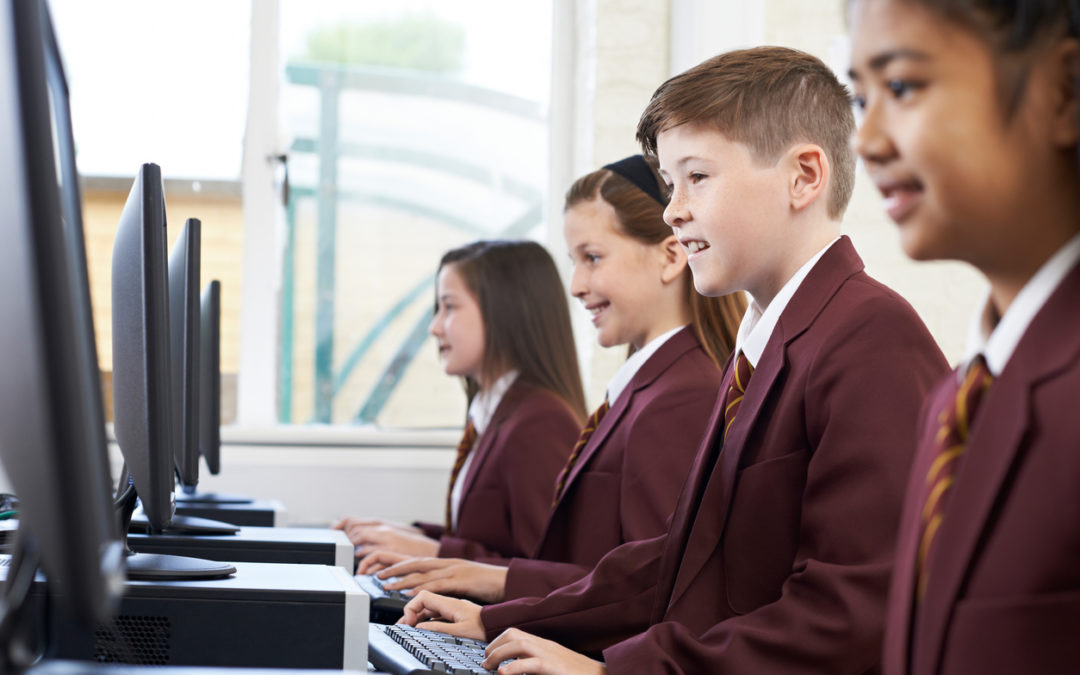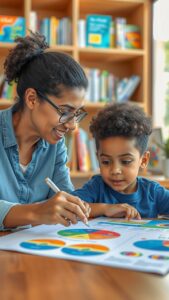In today’s rapidly evolving educational landscape, private schools are at the forefront of integrating technology into their curricula. Gone are the days of solely relying on textbooks and traditional teaching methods. Now, educators are embracing a variety of digital learning tools that enhance the educational experience, making learning more interactive and engaging for students. But what are these tools, and how do they benefit both teachers and learners? Let’s dive into the top digital learning tools private schools use to enhance education.
Understanding Digital Learning Tools
Digital learning tools encompass a wide range of software, applications, and platforms designed to facilitate learning. These tools can include everything from educational apps and online courses to learning management systems (LMS) and interactive whiteboards. The primary goal of these tools is to improve educational outcomes by making learning more accessible, engaging, and personalized.
The increasing popularity of digital learning tools can be attributed to several factors. Firstly, they cater to various learning styles, ensuring that every student can find a method that resonates with them. Secondly, they allow for real-time feedback, enabling teachers to tailor their instruction to meet individual student needs. Lastly, these tools help prepare students for a digital world, equipping them with essential skills for the future.

Key Digital Learning Tools in Private Schools
- Learning Management Systems (LMS)
Learning Management Systems are platforms that streamline the educational process by providing a centralized hub for course materials, assignments, and assessments. Private schools often use LMS such as Google Classroom, Canvas, or Schoology to manage their courses effectively. These systems facilitate communication between teachers and students, allowing for easy access to resources and feedback.
- Interactive Whiteboards
Interactive whiteboards, or smartboards, have revolutionized the way lessons are taught. These digital boards allow teachers to display multimedia content, draw diagrams, and even interact with educational software in real time. Students can also engage with the board, fostering collaboration and participation. Private schools have found that interactive whiteboards enhance engagement and retention by making lessons more visually appealing.

- Educational Apps
The rise of smartphones and tablets has given way to a plethora of educational apps. From language learning to math practice, apps like Duolingo, Kahoot!, and Prodigy offer interactive and enjoyable ways for students to reinforce their skills outside the classroom. Private schools often recommend specific apps to enhance learning, ensuring students have access to valuable resources.
- Virtual Reality (VR) and Augmented Reality (AR)
Virtual Reality and Augmented Reality are transforming how students experience learning. These technologies immerse students in interactive environments, allowing them to explore complex concepts visually and physically. For example, students can take virtual field trips to historical sites or explore the human body in 3D. Private schools that incorporate VR and AR into their curricula report increased student engagement and understanding of difficult subjects.
- Gamification Platforms
Gamification is the process of applying game-design elements in non-game contexts, and it’s become a popular method for enhancing learning. Platforms like Classcraft and Quizizz incorporate game mechanics into educational activities, making learning more enjoyable. Students earn points, badges, and rewards for completing tasks, which can motivate them to engage more deeply with the content.
- Online Assessment Tools
Assessment is a critical component of education, and online assessment tools like Formative and Edmodo allow teachers to create quizzes and surveys easily. These tools provide instant feedback, enabling educators to gauge student understanding and adjust their teaching accordingly. Private schools benefit from these platforms as they streamline the assessment process and enhance the ability to track student progress over time.
- Collaborative Tools
Collaboration is essential in today’s learning environment, and tools like Google Workspace and Microsoft Teams facilitate teamwork among students. These platforms enable students to work together on projects, share resources, and communicate in real time, whether in-person or remotely. By using collaborative tools, private schools encourage students to develop crucial interpersonal skills.
- Content Creation Tools
In an age where content is king, teaching students how to create engaging content is vital. Tools like Canva and Adobe Spark allow students to design presentations, infographics, and videos. Private schools that incorporate content creation into their curricula help students develop digital literacy skills and express their creativity.
- Online Research Databases
Access to information is more critical than ever, and online research databases such as JSTOR and Google Scholar provide students with a wealth of academic resources. These databases enable students to conduct thorough research for their projects, enhancing their critical thinking and analytical skills. Private schools often guide students on effectively using these resources to improve their academic performance.
- Social Media for Learning
Social media platforms, when used appropriately, can enhance learning. Educators can create dedicated groups on platforms like Facebook or Instagram to share resources, discuss topics, and foster a sense of community among students. Private schools that leverage social media for educational purposes can help students build their online presence and learn digital citizenship.
Implementing Digital Learning Tools in Private Schools
Adopting digital learning tools requires careful planning and consideration. Private schools must evaluate their needs, budget, and technological infrastructure before implementing new tools. Training teachers on how to use these tools effectively is also crucial for successful integration.
Moreover, schools should foster an environment that encourages experimentation and adaptation. As technology evolves, so too should teaching methods. Schools must remain flexible, allowing educators to explore new tools and find what works best for their students.
Engaging parents and the community in this digital transformation is vital. Informing parents about the benefits of these tools can encourage support and involvement, creating a cohesive educational ecosystem.
The Future of Digital Learning in Private Schools
The future of education is undoubtedly digital. As technology continues to advance, private schools will likely adopt even more innovative tools and methods to enhance learning. Artificial intelligence, machine learning, and adaptive learning technologies are on the horizon, promising to personalize education further and meet individual student needs.
The trend towards digital learning will also push schools to prioritize digital literacy skills, preparing students for a world where technology plays a central role. Educators will need to focus on teaching not just content but also how to navigate, evaluate, and create information in the digital realm.
Conclusion
Digital learning tools are transforming private school education, offering innovative ways to engage students and enhance their learning experiences. From Learning Management Systems to gamification platforms, these tools help educators create a dynamic and interactive environment that meets the needs of today’s learners. As technology continues to evolve, private schools must remain adaptable, embracing new tools to prepare students for a future filled with opportunities.
FAQs
- What are digital learning tools?
Digital learning tools are software, applications, and platforms designed to facilitate learning and enhance educational experiences. - How do Learning Management Systems benefit students?
Learning Management Systems provide a centralized hub for course materials, communication, and assessments, making it easier for students to access resources and receive feedback. - What is gamification in education?
Gamification involves applying game-design elements in educational contexts to motivate students and make learning more enjoyable. - How can virtual reality enhance learning?
Virtual reality allows students to explore interactive environments, making complex concepts more engaging and easier to understand. - What role do educational apps play in learning?
Educational apps provide interactive ways for students to practice and reinforce their skills outside the classroom. - How can private schools effectively implement digital learning tools?
Effective implementation requires careful planning, teacher training, and creating an environment that encourages experimentation and adaptation. - What is the future of digital learning in private schools?
The future of digital learning in private schools will likely include advanced technologies like artificial intelligence and a stronger focus on digital literacy skills.



